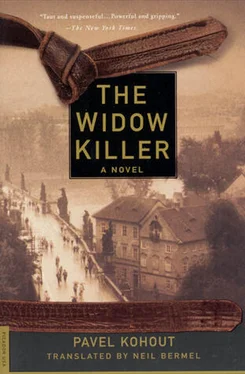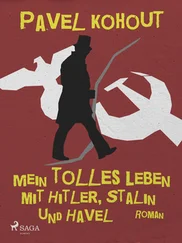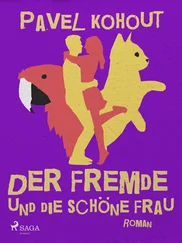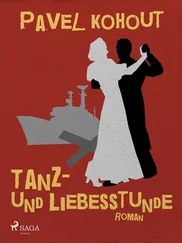Pavel Kohout - The Widow Killer
Здесь есть возможность читать онлайн «Pavel Kohout - The Widow Killer» весь текст электронной книги совершенно бесплатно (целиком полную версию без сокращений). В некоторых случаях можно слушать аудио, скачать через торрент в формате fb2 и присутствует краткое содержание. Год выпуска: 2007, Издательство: St. Martin's Press, Жанр: Современная проза, на английском языке. Описание произведения, (предисловие) а так же отзывы посетителей доступны на портале библиотеки ЛибКат.
- Название:The Widow Killer
- Автор:
- Издательство:St. Martin's Press
- Жанр:
- Год:2007
- ISBN:нет данных
- Рейтинг книги:5 / 5. Голосов: 1
-
Избранное:Добавить в избранное
- Отзывы:
-
Ваша оценка:
- 100
- 1
- 2
- 3
- 4
- 5
The Widow Killer: краткое содержание, описание и аннотация
Предлагаем к чтению аннотацию, описание, краткое содержание или предисловие (зависит от того, что написал сам автор книги «The Widow Killer»). Если вы не нашли необходимую информацию о книге — напишите в комментариях, мы постараемся отыскать её.
The Widow Killer — читать онлайн бесплатно полную книгу (весь текст) целиком
Ниже представлен текст книги, разбитый по страницам. Система сохранения места последней прочитанной страницы, позволяет с удобством читать онлайн бесплатно книгу «The Widow Killer», без необходимости каждый раз заново искать на чём Вы остановились. Поставьте закладку, и сможете в любой момент перейти на страницу, на которой закончили чтение.
Интервал:
Закладка:
“Of course not,” the man in black very quietly interjected, and it was immediately clear that he was in charge here. “We’re also here from the legitimate government via the Czech National Council. Here.”
He pulled out, unfolded, and displayed a sheet of paper.
“I have one too!” The lieutenant dug frantically through his pockets, finally finding it. “Are there two national councils, then?”
“Of course not,” the tall man repeated, now reminding Morava of a patient teacher, “but there are different factions; democracy is being restored and we represent the political forces that have obtained a clear majority in the council. In accordance with its resolutions, we are creating a new revolutionary militia from people untainted by the past. Its task here is, among others, to prevent collaborators from the ranks of the domestic bourgeoisie and bureaucracy from eliminating German witnesses to their treachery.”
“But that’s exactly what’s happening,” the runaway guard member exclaimed.
“What?”
“They’re torturing them!”
“Who? Whom?”
“Your people! Are torturing Germans. Civilians! Take it back….” He stuffed his armband into the man’s hand. “I don’t want to be like the Nazis.”
Another car pulled up behind Morava’s back; its door slammed. Warily he turned and his soul leaped. Matlák and Jetel were there behind Litera; both of them had submachine guns. The forces were now balanced, and Morava quickly roused himself to action.
“Is torture one of your ’tasks,’ then?” he asked sharply.
“Nonsense!”
For the first time, the black-suited man was upset and spoke loudly. Morava did not back down. He showed the man his badge.
“A charge of serious criminal activity has been made and we“—he pointed to his foursome, including the new police driver—“are detectives. If it’s true, then the international convention on treatment of civilian prisoners—” Grete Baumann! A thought flashed through his head: How is she? Got to check as soon as possible! Then he continued, “is being violated as well. And if we’re all part of one and the same government, then I appeal to you: Honor the reinstated law of this land and investigate the accusation together with us!”
The wiry one was about to object, but the man in the hat silenced him with a gesture.
“We have nothing to hide. But if it’s a lie, then you’ll prosecute him“—he pointed to the breathless man—“for slandering the revolutionary authorities.”
Although the boys at the gate played soldiers for them again, no one paid them any further attention. The excited lieutenant hurried ahead toward the left and apparently main entrance, but once there timidly stood aside, despite the fact that it had started to rain again. The black-clothed man entered first, with Morava behind him. A stench from his childhood assailed his nostrils, the identical smell of primary schools everywhere: a pervasive mixture of dust, sweat, and disinfectant wafting from the toilets and the open cloakrooms lining the school classrooms. When they reached them they stood stock-still in amazement.
The lockable cubicles surrounded by metal grillwork were filled with people. Displayed before their eyes like animals in a zoo, but packed as densely as in an overfilled tram, the cage’s silent inhabitants were primarily women, children, and the elderly. Occasionally one of the children would sob, and the newcomers would catch the fleeting movement of an adult hand covering the small mouth.
Only now did they notice the distant murmur of male voices. It suddenly intensified as the doors at the end of the hallway opened and three Revolutionary Guards entered. Seeing the police and army uniforms, the men rushed toward them, shouting hysterically, “Stop! Who let you in? What do you want?”
The man in black stepped forward in front of Morava, this time making no effort to back up his statement.
“My name is Svoboda; I’m a member of the Czech National Council and of the Central Committee of the Czechoslovak Communist Party. Who are you?”
The bristling trio drooped; their spokesman was almost embarrassingly unctuous in response.
“Excuse me, sir… I mean, comrade… I’m Lokajík, assistant to the local commander….”
The black-clad man interested Morava more and more. He remembered his grandfather, father, and all their neighbors sitting in the taproom after Corpus Christi service, pointing at a diminutive man who stood at the bar, sipping plum brandy. Look over there, his father nudged little Jan, who had been teasing the house cat under the bench and was already a mass of scratches; that’s a Communist! What’s that, Jan had inquired, and he had learned: He doesn’t go to church and wants to take everything we own away from us.
He had timidly watched the unshaven man with his luxuriant forelock, but the Communist’s stubborn aloofness somehow attracted the boy at the same time. Whenever Morava heard or read about Communist crimes during the war he thought of this man, a black sheep in a pious and pitifully barren land.
The prisoners, crammed into children’s cloakrooms, observed the scene mutely. It was as evidently unpleasant for the Communist as it was for Morava.
“Let’s move along!”
They went around the corner into the entrance hall.
“Why haven’t they been split among the classrooms?” he asked Lokajik quietly. “For God’s sake, whose idea was it to lock them up like animals?”
“The team decided…” the assistant commander said defensively. “Well, they were acting like animals earlier!”
One of his escorts flared up.
“Do you know what they were doing? Throwing grenades into shelters with children in them! Chasing us with tanks!”
“These people?”
“A German’s a German!” the man countered angrily. “An eye for an eye, a tooth for a tooth! And for the record: I’m a Communist too.”
“Is that so?” Svoboda answered icily. “Then instead of the Bible, quote this: ’Hitlers come and go, but the German nation remains.’ Do you know who said it?”
Once again Svoboda was a teacher, and the man stumbled like a pupil caught unprepared.
“No….”
“Comrade Stalin. And if you’re really a comrade, you should employ a class approach, not a nationalist one. Listen up!” Svoboda addressed the guardsmen, police, and soldiers, trying to rally the motley bunch around a common task. “Any Germans who have committed crimes will be punished severely and mercilessly, but we are depending on the German workers to help us bring about a worldwide socialist revolution. This human menagerie,” he pointed to the hallway, “is a stain on our ideals. Comrades, transfer them into classrooms immediately, men apart, women with children!”
“Yes…,” his men chirped, including the rebel.
“And what’s happening there?”
Svoboda pointed, and Morava could hear a clamor of men’s voices in the distance. The trio were even more hesitant.
“There…” Lokajík forced the words out, “that’s where they’re interrogating—”
“Who, whom, and why?”
“Our men are interviewing the Germans… about hidden valuables. ..”
The high functionary headed toward it. The rest of them followed him wordlessly down that depressing hall past the cages, where only the sniffling of a child’s nose could be heard. The din grew louder until only a door separated them from its source.
“You first,” Svoboda ordered the three locals.
They proceeded behind him into the school gymnasium, so similar to the one where young Jan Morava had trained his muscles. It had never occurred to him that a gym could serve admirably as a torture chamber.
Like school classes practicing in teams on various contraptions, groups of guardsmen were gathered around the equipment. One of them always had a notebook, pad, or piece of paper in his hand, as if grading their efforts. The focus of their attention however, was not gymnasts, but half-naked men, each tied to an apparatus: one to the handles of the pommel horse, another to the crosspieces of the wall bars, a further one to the grips of the Swedish box. The fourth, on a diagonal ladder, was stretched out by his hands and feet, like in the dungeons of old. The final man was swinging, arms and legs bound, from low-hanging rings.
Читать дальшеИнтервал:
Закладка:
Похожие книги на «The Widow Killer»
Представляем Вашему вниманию похожие книги на «The Widow Killer» списком для выбора. Мы отобрали схожую по названию и смыслу литературу в надежде предоставить читателям больше вариантов отыскать новые, интересные, ещё непрочитанные произведения.
Обсуждение, отзывы о книге «The Widow Killer» и просто собственные мнения читателей. Оставьте ваши комментарии, напишите, что Вы думаете о произведении, его смысле или главных героях. Укажите что конкретно понравилось, а что нет, и почему Вы так считаете.












